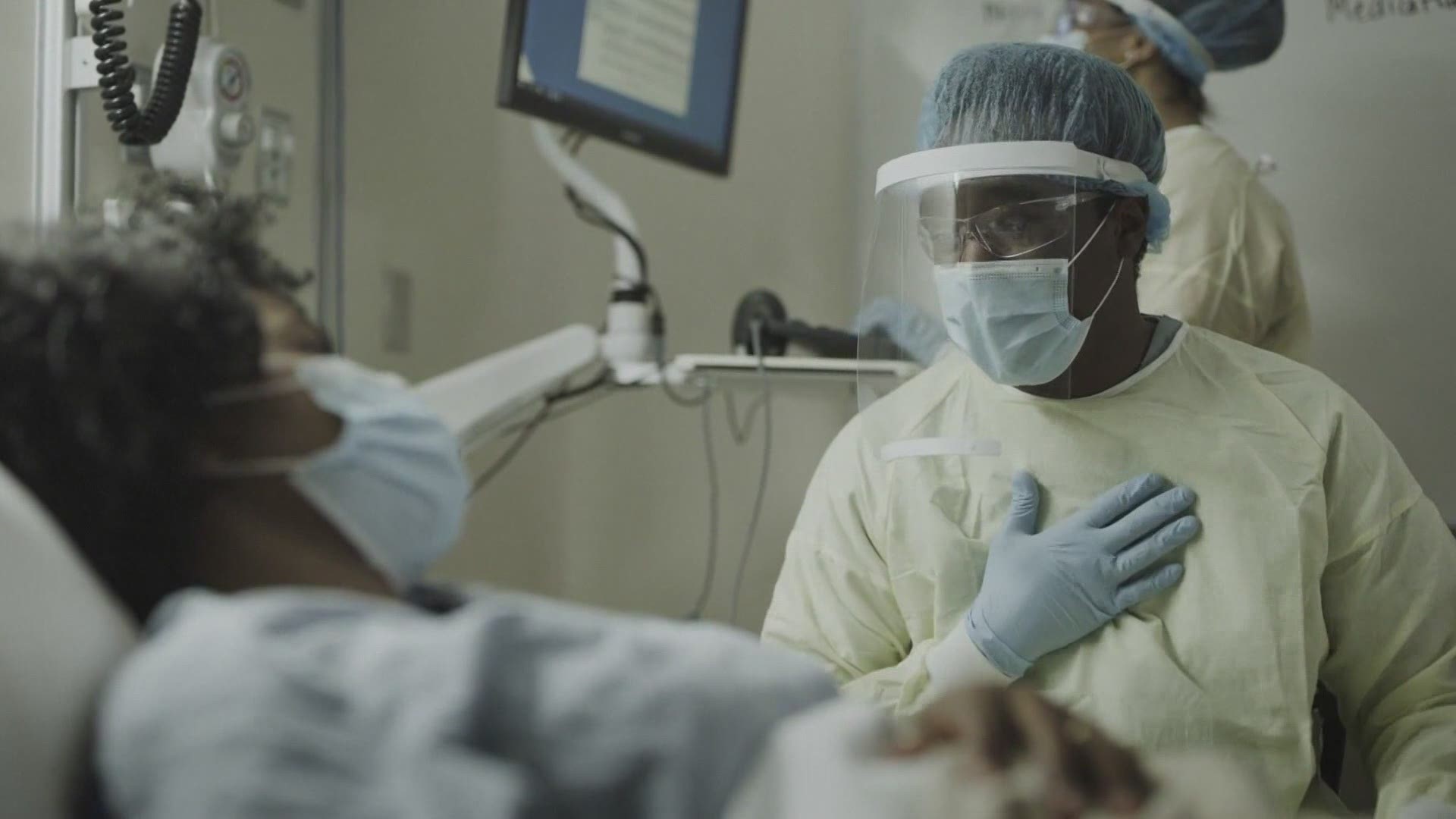SEATTLE — There has been a shortage of qualified nurses for decades, and the Washington State Hospital Association (WSHA) believes the shortage is not coming to an end anytime soon.
“We do expect the shortage to continue to grow and be more substantial over the coming future,” said Darcy Jaffe, the vice president of safety and quality at the WSHA.
So, what is causing the nurse shortage?
It comes down to a lack of nursing faculty at universities and small admittance numbers to nursing schools, according to the WSHA and the Washington State Nurses Association (WSNA). Only about 50% of people who apply to nursing school get accepted. Burnout is another cause as many nurses feel overworked and tired.
“COVID-19 exacerbated the problem,” said WSNA President Lynnette Vehrs.
The COVID-19 pandemic kicked the nurse shortage into overdrive.
“Nurses left the profession. They said, ‘this is not what I signed up for,’” explained Vehrs. “They were sometimes felt not treated correctly or just completely overwhelmed. You feel like you're in a war zone, quite frankly. If you don't have the right equipment, you don't have enough staff members around you. Yeah, it is quite overwhelming.”
While there may not be an immediate solution, there are some ideas on how to help long term.
“I think it needs to be resolved by thinking differently about care. Health care is changing, and especially in the hospitals,” said Jaffe. “We will not have enough nurses to continue to do nursing in hospitals the way we're doing it now, and we need more. We need to continue to work on the basics and increase the opportunities for qualified people to go to nursing school, work with the middle schools and the high schools to get people more qualified to go, particularly in our underserved areas.”
“If we could admit more of the people that applied [to nursing school]. It's unfortunate, we've got almost twice as many people that apply to a school then actually get in because our slots are so few," said Vehrs. “Our health care facilities need to treat our nurses and support them a little bit more. I know in many facilities they are trying."
Some hospitals and health care facilities are providing mental health services for nurses who have worked through the pandemic.
That’s one big way experts said nurses need to be supported.
“I think when this is all done, we're going to need to really reach out and do a lot of mental health caring for our nurses and other health care providers,” said Vehrs.
But if you ask a nurse, even through the hardships, there’s a sense of pride in what they do.
“I am so proud to be a nurse, and there are so many great health care providers out there that are choosing to stay in the front line giving their best,” said Vehrs. “They have that compassion and that intelligence to know how to take care of them. And I'm just, I'm quite proud of them.”

